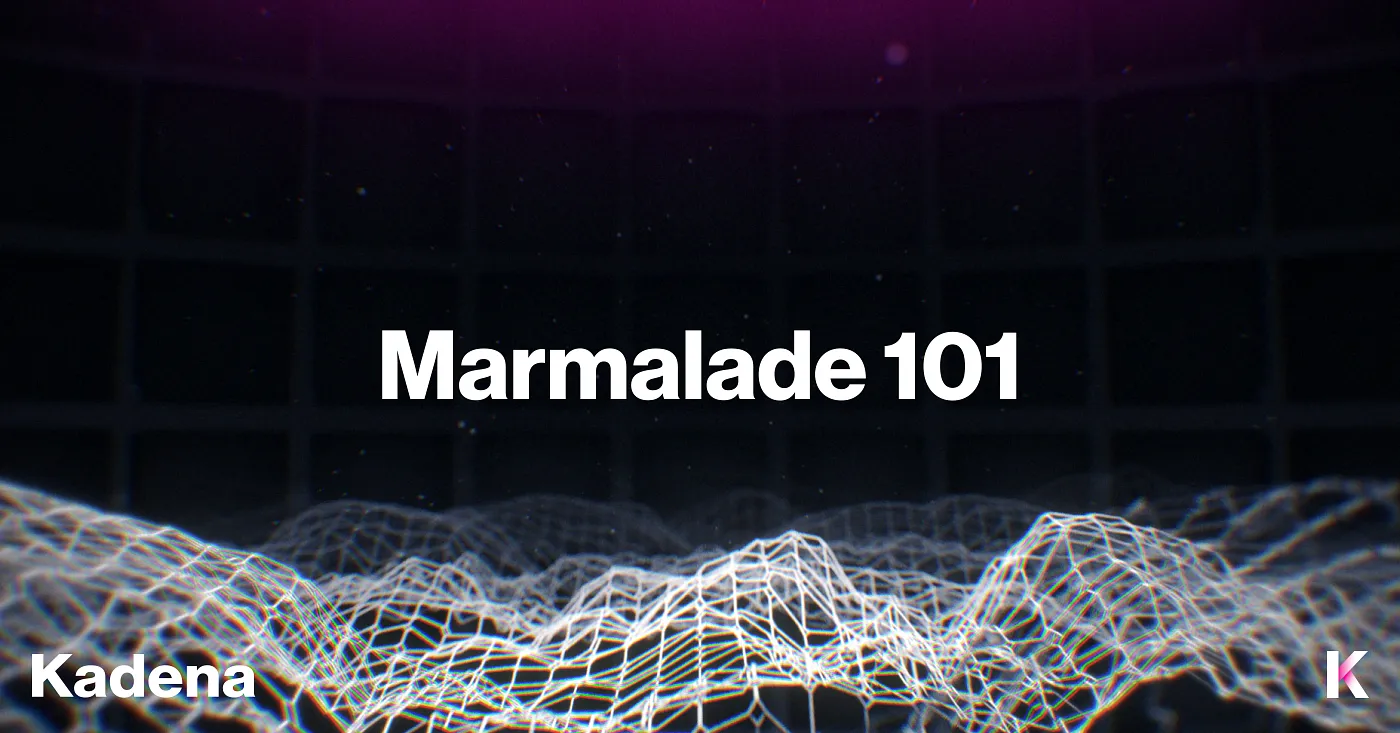Marmalade Made Easy
Non-fungible tokens (NFTs) have taken the digital world by storm, revolutionizing the way we buy, sell, and trade digital assets. These unique digital tokens represent ownership of a wide range of digital and physical items, from artwork to collectibles, music, and more. To facilitate the creation and exchange of NFTs, various NFT standards, such as the ERC-721, have emerged, each with its own set of rules and specifications.
Among these NFT standards, Marmalade, powered by Kadena, stands out as one of the most unique and innovative standards. Marmalade is set to provide the complete infrastructure to seamlessly create & launch a game-changing NFT experience.
In this article, we will explore the concept of NFT standards, highlight some of the challenges facing existing standards, and delve into the distinct features that set Marmalade apart from the rest.
What is an NFT standard?
An NFT standard refers to a set of rules and specifications that dictate how non-fungible tokens (NFTs) are created, stored, and interacted with on a particular blockchain.
Standards are essential because they ensure interoperability and compatibility between different NFT platforms, wallets, and marketplaces. They provide a common framework for developers to create and manage NFTs, making it easier for users to understand how these tokens work and to trade them across various ecosystems.
The most well-known and earliest NFT standard is the ERC-721. It is an Ethereum-based standard used to create indivisible and unique tokens, making it suitable for digital art and collectibles.
Challenges with Existing NFT Standards

Despite the success and widespread adoption of NFTs, several challenges persist within existing NFT standards.
-
Scalability Issues and High Gas Fees Many NFT standards, particularly those on the Ethereum blockchain, face scalability issues. This results in high gas fees and slow transaction times during periods of high demand, making NFT creation, buying, and selling expensive and inconvenient.
-
High Transaction Fees or Non-transparent Fee Structure
Transaction fees on blockchain networks can be prohibitively high, especially during network congestion. This impacts the profitability and accessibility of NFT marketplaces.
-
Lack of Built-in Mechanisms for Specific Requirements NFT standards typically lack built-in mechanisms to enforce specific requirements during NFT sales, such as royalties, leaving this responsibility to external platforms and mechanisms.
-
Limited Secondary Market Control Original creators often have little control over subsequent sales and pricing on secondary markets, impacting long-term value appreciation.
Marmalade V2 is the Solution

-
Marmalade, developed on the Kadena blockchain, addresses many of the challenges present in existing NFT standards, offering several unique solutions
On-Chain Royalties/Enforceable Royalties: Marmalade includes built-in mechanisms for enforcing royalties during NFT sales, ensuring that creators are fairly compensated for their work for every single transaction.
-
Escrow Accounts
With its integrated escrow accounts for NFT transactions, Marmalade guarantees the safety of both buyers and sellers, delivering an outstanding user experience and ensuring flawlessly secure and trust-free transactions for complete peace of mind.
-
Limitless Customization with “Token Policies”
Marmalade empowers creators with a dynamic platform, allowing them to craft and personalize features, or “policies”, uniquely suited to their NFTs. With a user-friendly toolset, the NFT creation process is made remarkably straightforward. Creators wield full authority over the issuance of their NFTs, with the ability to finely tune factors such as total supply (the number of NFTs in circulation) and the allocation of units for transfer. This flexibility and adaptability are at the core of Marmalade’s distinctive appeal, enabling creators to fully realize their vision and tailor their NFT projects to their specific needs.
-
Minimal Gas Fees Marmalade significantly reduces or eliminates gas fees, making it more cost-effective for artists and collectors to participate in the NFT market. Marmalade is powered by Pact, Kadena’s smart contract language. Pact allows NFT projects to optimize the user experience by integrating “gas stations” into their applications. These “gas stations” serve as mechanisms for covering the expenses tied to blockchain transactions. Consequently, users can seamlessly generate NFTs without the need to directly engage with the intricacies of blockchain technology. This streamlined process ensures a user-friendly and efficient experience, devoid of the complexities typically associated with blockchain interactions.
An Elevated NFT Experience
Marmalade’s unwavering commitment to democratizing NFT creation is a commendable endeavor that aims to redefine the way we approach digital art and collectibles. By removing barriers and making this innovative technology accessible to a broader spectrum of individuals, Marmalade is opening the doors to a new era of artistic and collectible expression.
Get ready to elevate the NFT experience as we pave the way for a more diverse, scalable, and secure future.

